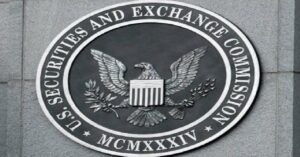Unlike the EPA, the Securities and Exchange Commission (SEC) lacks a paramilitary force. But one recent article says it’s nonetheless gearing for war. The SEC’s enemy is initial coin offerings (ICOs), a capital-raising tool popular with startups immersed in blockchain.
In a 10,000-word tome, consultant John Stark, a 20-year veteran of the SEC’s enforcement division, outlined the Commission’s battle plan. The opus included myriad of violent and marital imagery. “Sweeps” appears eight times, along with “counteroffensives,” “well-stocked statutory armory,” “onslaught,” “dragnet,” and “blood on the floor.” Is Mr. Stark is discussing a government agency or the Viet Cong?
Various federal, state, and even international bodies are ready to fix bayonets and charge (!) with the SEC for the glory of investor protection.
The SEC shouldn’t be at war with companies trying to play by the rules
Assuming Mr. Stark knows his stuff, the SEC’s plan raises interesting questions about federal regulators at the dawn of the third net. The agency like so much of the administrative state arose via the government-induced Great Depression.
How much should the SEC keep people their foolhardy choices? To Mr. Stark this answer is manifest given that in the early 2000s “many investors also lost their life savings by buying into IPOs of companies encompassing little more than a sales pitch with the word “Internet” in the description.”
But assuming this is true, those IPOs came with SEC-enforced disclosure. In America shouldn’t someone be able to risk their entire life savings on an investment that could bring gargantuan wealth? The wisdom of such risks should be the domain of adults smart enough to attain a life savings in the first place.
The SEC should focus on “war profiteers”
Of course, some ICO’s are just frauds. Indeed, the SEC recently charged a Brooklyn conman after allegedly lying about material facts on two ICOs. Thus far, the agency has focused on these situations.
But to Mr. Stark and many others this isn’t enough. The government should protect investors from fully disclosed and vetted opportunities. This common bureaucratic view though has a price.
As John H. Cochrane, Senior Fellow of the Stanford Institute for Economic Policy Research states:
Financial regulations are often enacted with little concrete definition, to say nothing of quantification, of their costs and benefits. Regulators and economists have little understanding of causal mechanisms that may provide benefits and incur costs. Worse, they often think they know cause and effect, either wrongly or with far more precision than they actually do, and enact regulation on the basis of unverified cause-and-effect speculation. Agencies and regulations often work at cross-purposes, one promoting what the other tries to reduce—lending to poorer and riskier borrowers, for example. Regulations stay in place long after everyone sees they are not working or are counterproductive. Regulators layer on additional rules to combat the consequences of the last round, which have their own adverse consequences.
The SEC’s lack of guidance makes the problem worse
More than ignoring them, the SEC’s silence towards those trying to create SEC-compliant ICOs has worsened the situation. The agency stonewalled until July when it retroactively declared the failed DAO ICO a security and thus subject to its ambit.
Staff-level guidance fares no better. One seasoned securities attorney describes his recent experience:
One inquiring ICO issuer was, essentially, referred by the SEC Staff to the Howey test and told to consult further with his securities counsel.
My own recent experience, as a seasoned securities lawyer on behalf of an ICO issuer of utility tokens, did not fare much better. Yes, I prepared a detailed written analysis of my client’s “facts and circumstances,” and dutifully directed it to the SEC Staff at [email protected]. The Staffer who eventually responded to my inquiry was thoroughly knowledgeable. Yet in the end, he was unwilling to get into “facts and circumstances,” instead directing me to the same case law which I had already reviewed.
(Update the SEC named Valerie Szczepanik aka ‘NPC Valerie‘ as its crypto czar. Under her name, the SEC has since released underwhelming crypto guidance).
This puts everyone in the stance of wondering if they will be on the business end of SEC artillery. One lawyer recently described being in the SEC’s crosshairs “like living in hell without dying.”
Everyone is trying to adapt to the new world
So to recap: Commissioners give off-cuff warnings. Staff won’t say anything publicly that would assist, and insiders direly warn of forthcoming “sweeps.” The only people who benefit here are consultants, presumably with personal relationships on the SEC’s enforcement staff, who can “consult” for the right price.
But this does little for innovators and lawyers trying to keep clients from becoming casualties instead of participants in a nascent technology revolution.
Bitcoin, the basis for ICO, is not going away. It will continue to integrate into our everyday financial transactions and activities. As it does, ICO will keep attracting companies involved in blockchain. Congress and the SEC should provide a path for SEC-compliant ICOs that will benefit the American economy and mankind. (Update, the SEC qualified its first Reg A+ token sale in July 2019.)
Congress could reign in SEC war hawks
Congress should direct the SEC to implement the following fixes for ICO companies seeking compliance:
- The SEC should integrate ICO with Reg A+ and make clear Reg A+-compliant ICOs face no other regulatory barrier. This includes waiving onerous state-level hurdles as the Treasury recommended in a recent report: “Although federal securities laws do not impose trading restrictions on [Reg A+] Tier 2 securities, state “blue sky” laws may impose registration requirements . . . state securities regulators [should] promptly update their regulations to exempt secondary trading of Tier 2 securities or, alternatively, the SEC use its authority to preempt state registration requirements for such transactions.”
- Raise the limit on Reg A+ Tier 2 to $100 million from $50 million over a 12-month period. This ensures ICOs can get the capital it needs while enduring a public qualification process.
- Reduce post raise reporting to annual instead of semi-annual. The ICO company must still report major changes but it can reduce accounting and legal fees. Given the liquidity Reg A+ provides market signals will provide investors needed information.
- Streamline broker dealer rules to allow finders and promoters to operate without fear of SEC enforcement. A “broker-dealer lite” could enhance visibility for new ICOs and speed secondary-market maturity.
These pain-free fixes could ensure a smooth transition to SEC-compliant ICOs. US companies can innovate in ways that improve all our lots. And only con men are ‘sent to hell without dying.’
In 10,000 words Mr. Stark dedicates one-half sentence to not stifling technological innovation. If his attitude is indicative of the SEC’s enforcement division and Congress discards its overseer role, technological advances will capitalize in Russia or London and even consultants will feel the burn.







